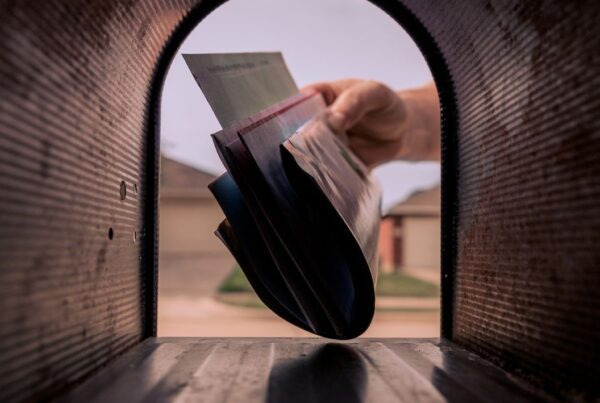 If you own commercial property in Florida, you already know that construction work comes with risk. One of the biggest headaches property owners face is the threat of a construction lien. Even when you pay your contractor on time, a subcontractor or supplier you’ve never met can file a lien against your property.
If you own commercial property in Florida, you already know that construction work comes with risk. One of the biggest headaches property owners face is the threat of a construction lien. Even when you pay your contractor on time, a subcontractor or supplier you’ve never met can file a lien against your property.
It happens more often than people realize, and resolving it can cost time, money, and sometimes delay a sale or refinancing. The good news is that most construction liens can be prevented with the right steps.
What Is a Construction Lien in Florida?
A construction lien (often called a mechanic’s lien) is a legal claim placed against your property by a contractor, subcontractor, or supplier who says they were not paid for work or materials.
Florida’s Construction Lien Law gives them that right, even if you personally never hired them. That is why commercial property owners need to be proactive from day one.
Why Do Construction Liens Happen Even When Owners Paid the Contractor?
This is one of the most common questions we get. The simple answer is: You may have paid the general contractor, but the general contractor may not have paid everyone under them.
In other words, the construction lien is not necessarily accusing you of wrongdoing. But it still becomes your problem to fix, that’s why prevention is essential.
How Do I Prevent This?
Step One: Use a Written Contract That Includes Lien Protection Language
A strong commercial construction contract is your first line of defense. At minimum, it should include:
- Clear payment schedules tied to completed work
- Lien waiver requirements for every draw
- Right to request proof of subcontractor/supplier payments
- Notice to Owner obligations
- Indemnification provisions if a contractor fails to pay their subs
Most owners focus on pricing and timelines but overlook lien protections entirely. A well-drafted contract reduces nearly every major lien risk before the project even begins.
Step Two: Understand Florida’s Notice to Owner (NTO) Requirements
In Florida, anyone who does not have a direct contract with you (like subcontractors or suppliers) must send you a Notice to Owner to preserve lien rights.
This document tells you:
- Who they are
- What work or materials they are providing
- That they may file a lien if they are not paid
If you receive one, do not ignore it. It does not mean a lien was filed, it simply means this person must be paid, and you must make sure they are.
Step Three: Require Partial and Final Lien Waivers With Every Payment
This is where many owners slip up. Every time you issue a payment to the general contractor, you should receive:
- A partial lien waiver covering all work through that payment
- A sworn statement listing subcontractors and suppliers
- Proof that subs and suppliers have actually been paid
If you only get a waiver from the contractor, and not from the subcontractors, your protection is incomplete.
In commercial projects, this is essential. Always confirm that the people performing the work are actually receiving the money.
Step Four: Control the Flow of Payments With a Proper Payment Procedure
Instead of paying a contractor based on trust, require:
- Invoices
- Work completion verification
- Lien waivers for all subs and suppliers
- Updated subcontractor lists
Many liens arise because contractors take early payments, spend them elsewhere, and later fall behind. A structured payment system reduces that risk significantly.
Step Five: File a Notice of Commencement Correctly
A Notice of Commencement is required for most construction projects in Florida. It must be accurate, posted at the jobsite, and recorded with the county.
Mistakes in the Notice of Commencement create liability issues and can complicate your defense if a lien is filed. If you’re unsure how to prepare it, have your attorney handle it. It is inexpensive and avoids serious complications later.
Step Six: Keep All Construction Documentation Organized
If a lien is ever filed, you will need:
- The construction contract
- All invoices
- Proof of payments
- All lien waivers
- NTOs received
- Change order approvals
- Payment logs
Good record-keeping helps your attorney resolve a lien faster and sometimes eliminate it without litigation.
Step Seven: Act Quickly If You Receive a Lien Notice or Claim
A construction lien is time-sensitive, and delays only make the situation worse. You should speak with a construction attorney immediately if you receive:
- A Notice to Owner
- A Claim of Lien
- A Notice of Intent to Lien
- A lawsuit to foreclose the lien
Some construction liens can be discharged, bonded off, shortened, or invalidated altogether, but timing is critical.
When to Bring in a Construction Attorney
You do not need a lawyer for every step of a project, but you do need one when:
- A project is large, multi-phase, or commercial
- You are dealing with multiple subcontractors
- You do not fully understand the lien rights being created
- Money is withheld or disputed
- A lien has been filed or threatened
Preventing a construction lien is far less expensive than resolving one. Most commercial owners prefer to involve a lawyer early, during contract drafting and payment planning, because these early steps eliminate most future disputes.
Final Thoughts: Prevention Is Always Cheaper Than Litigation
Construction liens are avoidable. With strong contracts, consistent documentation, and the right payment protections, commercial property owners can prevent most construction lien disputes before they ever arise.
If you are starting a project, facing construction lien threats, or already received a notice, contact one of our experienced attorneys in Miami at 305-570-2208.
You can also contact our founding attorney Eduardo A. Maura at eduardo@ayalalawpa.com.
Schedule a case evaluation online here.
[The opinions in this blog are not intended to be legal advice. You should consult with an attorney about the particulars of your case].
Subscribe to Our Blog
Stay informed with our latest blog posts delivered directly to your inbox. Gain valuable legal insights, tips, and advice from our seasoned attorneys.







